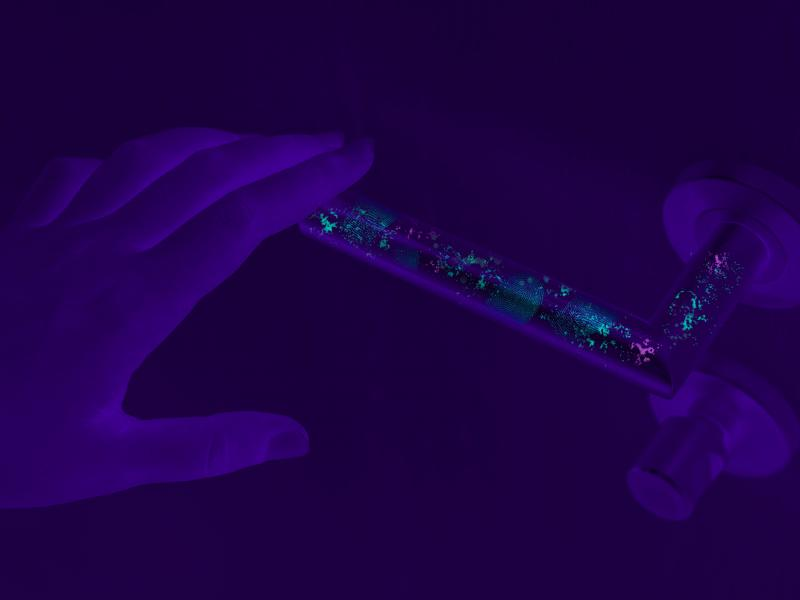Jun 16 2020
A device that can automatically disinfect common surfaces such as elevator buttons, light switches, and doorknobs, could be very helpful to mitigate virus and disease at the time of COVID-19 pandemic and even after that.

Image Credit: Rensselaer Polytechnic Institute.
At the Rensselaer Polytechnic Institute, Michael Shur, a bestowed chair professor of electrical, computer, and systems engineering, has devised a scheme to disinfect high-traffic surfaces with the help of deep ultraviolet (UV) light from LEDs.
The device that is being developed by Shur includes a solid shield that could cover, for example, a tablet utilized to check in at a doctor’s office. The shield would stay closed while the tablet is disinfected by deep UV LEDs fitted on the inner side of the shield.
Shur has proposed a new kind of advanced fluorescent sensor to evaluate the degree of contamination, while the gathered data would be processed by an artificial intelligence algorithm.
A sensor fitted on the exterior part of the shield would indicate someone is ready to use the surface, urging the buffer to open, the LEDs to switch off, and for entry to be offered to the tablet once disinfection is done.
The COVID-19-causing virus mainly spreads from one person to another, but the Centers for Disease Control and Prevention report that the transmission could occur if individuals touch a surface where the virus exists and then touch their eyes, nose, or mouth. According to Shur, several other bacteria and viruses spread on surfaces, which could make this device beneficial even other than for the pandemic.
Shur envisions a future where indispensable institutions, such as hospitals or government buildings, might implement such a tool that could disinfect common surfaces, avoiding the spread of several diseases.
Of course, it’s for health professionals to decide, but I think that modern medicine has to be augmented by effective sterilization. It’s a very modest expense that will save lives and, as we learn more, these things could be improved, become more reliable, cheaper, and more acceptable.
Michael Shur, Chair Professor, Electrical, Computer, and Systems Engineering, Rensselaer Polytechnic Institute
Shur has dedicated many years of his career to this area of research. He stressed the necessity of approaching a sterilization measure with science and expertise to safeguard the people from detrimental radiation. Currently, Shur is seeking financial support so that a prototype of this device can be constructed.
I think we as engineers have a responsibility to respond somehow. Some ideas might go forward, some may not. But it’s good if we try to do something.
Michael Shur, Chair Professor, Electrical, Computer, and Systems Engineering, Rensselaer Polytechnic Institute